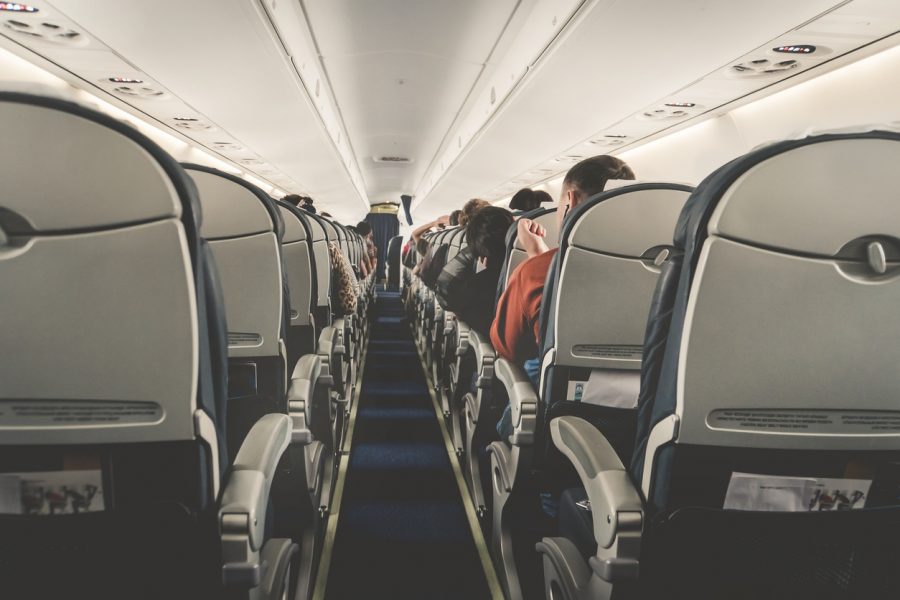
Airfares to start from ₹2,000 as Centre introduces seven bands of pricing

Turning the clock back on economic liberalisation, the Centre on Thursday (May 21) announced that it would regulate airfares in the domestic market for the next three months. This follows apprehensions that fares would skyrocket as domestic flight services are set to re-start on a staggered basis from next week.
According to the Directorate General of Civil Aviation (DGCA), airlines will follow seven bands of ticket pricing. The first such band will consist of flights that are of less than 40 minutes duration.
The lower and the upper fare limits for the first band is ₹2,000 and ₹6,000 respectively, while it ranges between ₹6,500 and ₹18,600 for the seventh band, which would consist of flights that have a travel time of 180 to 210 minutes.
Earlier, Civil Aviation Minister Hardeep Singh Puri said airlines would be allowed to resume only a third of their operations, both for flights between metros, and those between metros and non-metros from May 25.
Generally, airlines adjust their fares in buckets based on the demand-supply gap. This benefited consumers who booked three or six months in advance. People who booked later paid more.
But the Government has announced that there would be an upper band and lower band for each sector — classified based on the duration of the flight.
For example, fares on the Delhi-Mumbai route, which is the busiest in India, have to be within a band of ₹3,500 to ₹10.000 and at least 40 per cent of the tickets have to be sold at the average price of ₹6,750, which is the midpoint of ₹3,500 and ₹10,000, Civil aviation secretary Pradeep Singh Kharola said.
Related News: AAI advisory for domestic fliers: Just one check-in baggage, no food on plane
If a floor price is not fixed by the government, then airlines might be tempted to sell all tickets at the higher end of the ceiling, the Civil Aviation Minister explained. The price band announced by Puri does not include taxes and the total fares would be higher.
The actual cost to passengers who take to the skies in the coming weeks could be higher than what it used to be before the COVID-19 lockdown when IndiGo, SpiceJet, Vistara, Air India and GoAir were operating with competitive capacities. The price bands will fair to airlines too, Puri said. Airlines had suffered a huge blow due to the two-month COVID-19 lockdown.
He said, it is mandatory for passengers to wear face masks and carry hand sanitisers, while cabin crew will be required to be in full protective gear. “Airlines shall not provide meals on board. Water bottles will be made available in gallery area or on seats,” he said. The minister said, based on experiences of operating domestic flights, the ministry may tweak some procedures before moving on to re-opening international flights.
Regulating the fares is not a good decision even if it is for a short period, said Kapil Kaul, India head of the Centre for Asia Pacific Aviation (CAPA). This is another step that is not in favour of consumers similar to an earlier move of airlines not providing cash refunds to passengers for cancelled flights, he said. “There are other entities like airports which have more fixed costs than airlines and they might also demand similar tariff systems.”
The fare slabs miss the demand-supply factor where flights between some locations can be cheap if more flights are available and airlines resort to discounting to fill their seats.
Related News: India may resume international flight operations next month
In addition, demand is expected to peter out once those who are stranded in various places return to their hometowns.
“There is a lot of uncertainty and fear of coronavirus may deter people from travelling. Due to the economic slowdown that has wiped off jobs and affected business, not many people may opt for travel unless it is for some unavoidable purpose,” said Vinay Maheshwary of Services International, a Delhi-based tour operator. Leisure travel may not revive for a long time if fear of coronavirus persists, he said.
The general feeling is that fares are better left to market dynamics by moving according to the demand-supply in a competitive market. The aviation industry has been quite competitive in India and fares have sobered down even after a temporary surge when Kingfisher and Jet Airways closed down, leading to lower capacity.
Rapidly expanding fleets of other airlines has resulted in capacity growing back, leading to competitive fares. In the post-Coronavirus era, air travel is expected to decline steeply and this would only result in fares remaining sober. In the case of rescue flights under “Vande Bharat” mission, the government had fixed fares rather than letting market dynamics decide.
Also, only Air India has been deployed so far and private airlines have not been offered the challenge of offering lower fares to bring stranded Indians back home. A clear picture will emerge once domestic flight services resume on May 25 and the demand-supply picture becomes clear.


